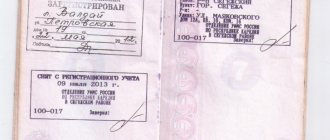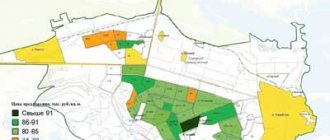Increasingly, people are thinking about whether it is possible to live without registration. Issues related to finding a place to live often cause certain problems. Therefore, people think about how to avoid unnecessary hassle. Let's look at the features of registration in Russia. How is it different from registration? Is it obligatory for citizens to have a stamp of the established form in their passport? Is there any penalty for not registering? The answers to all these questions will definitely be presented in this article.
Terminology
First, a few words about what registration and registration are. Previously, in Russia these terms were radically different.
Now registration is the same as registration. But in real life, the first term is defined as whether a person has a permanent place of residence. Registration, as practice shows, means that a citizen has a temporary shelter.
It is these principles that will guide us further. Registration is a document certifying a permanent place of registration at a particular address. Registration is a document confirming that a person has temporary housing.
Who can be registered
The next important point is the question of who can be registered in a particular territory. Are there any restrictions on this issue?
No. Citizens can register any person - both a citizen of the Russian Federation and a foreigner. The age of the resident also does not play any role. Both children and adults can be registered. Just remember that registering a child is a more serious and complicated process. It provides its own features, which we will get acquainted with later.
The need for accounting
Is it possible to live without registration? What about without registration? To answer these questions, you need to turn to the current legislation of Russia.
By law, all residents of the Russian Federation are subject to mandatory migration registration. A Russian citizen is obliged to inform migration services about his movements. Otherwise, he will violate current legislation. And this will cause a lot of problems.
Is it possible to live without residence permit and registration without breaking the law? No, but practice shows a slightly different picture. We'll talk about this a little later. The main thing is to remember that when living in Russia, people must have a place of residence “on paper”. And it doesn’t matter whether it’s temporary or permanent.
Principle of classification
Permanent and temporary
The difference in the types of registration can affect the decision-making process when registering the fact of residence of a citizen. To understand how permanent registration differs from temporary registration, it is necessary to refer to the current federal legislation governing this aspect.
Citizens of Russia and residents of foreign countries can apply for temporary registration in the following cases:
- in the interval between the sale of living space and the purchase of a new one;
- during a business trip, when it is impossible to carry out your work activities without registration;
- in the process of spa treatment;
- in the process of temporary relocation for other reasons.
It is worth noting that tourists, students, employed citizens on a business trip, and so on can count on temporary registration.
As for permanent registration, it implies the presence of a corresponding stamp in the passport.
A permanent visa gives a citizen the following rights:
- to use the residential premises for their intended purpose;
- to protect rights when transferring residential space into the ownership of a third party;
- for registration of minor children and other family members.
Registration at the place of residence does not have an established and strictly regulated validity period
Comparison with registration
A citizen is obliged to complete the registration procedure at the place of residence within 7 working days after actual arrival at a new place of residence. To register in a municipal residential area, it is necessary to obtain the consent of all persons registered in the premises.
Registration is carried out based on consideration of the relevant application by the owner of the premises. Such an owner could be, for example, a city.
To register at the place of residence, the consent of all owners is required. In this case, the consent of registered persons is not required
. After completing this type of registration, a citizen is given a special stamp in his passport.
Foreigners and migration registration
Is it possible for foreigners to live without registration? As already mentioned, a person on the territory of the Russian Federation is subject to migration registration. Local residents must acquire a place of residence. What about foreigners?
They can stay on the territory of the Russian Federation without residence permit or registration. Typically, this rule applies to persons living no more than 90 days in Russia.
This means that foreigners do not have to register in the Russian Federation for 90 days. After this, you will either have to leave the country or obtain the appropriate document. Some citizens, in order not to register, cross the border from Russia and back every three months. In such cases, they are again subject to permission to reside without the appropriate documents. The period of residence is counted from the date stamped on the passport when crossing the border. The number of days per year is not calculated, because the law “On Migration Registration of Foreign Citizens and Stateless Persons of the Russian Federation” does not regulate this.
How many people can be accommodated in 2 rooms? apartment with an area of 42.5 m?
Svetlana
Hello Svetlana! It is better to contact the head of the passport office with this question. If you convince him that all 9 people can actually live in this apartment, he can give the go-ahead. If you are not convinced, demand an official refusal and file a lawsuit.
With a statement to the head of the passport department, he puts his resolution, as a rule, if close relatives are positive. I myself registered for 52 sq.m - 4 people registered + parents of 2.
Participant of the program “? I work honestly”
Previously, the legislator discussed the topic of “rubber apartments”. I don’t know whether this discussion has developed into concrete laws. It may very well be. Submit an official request to the Federal Migration Service and let them give you an official response with references to the current legislation.
You can submit an application for registration of as many people as you think necessary, but the head of the passport office may refuse, then you need to get a reasoned refusal to register the living space; if you don’t agree, you can try to appeal the refusal in court with the obligation to register the specified persons.
Strange. If you present documents proving your relationship, then there should be no problems. I went through this myself a year ago. Maybe there is something left unsaid by you? If there are no documents related to the relationship, then you may be offered a free rental agreement (my Mom was registered like this for three months, while I received a repeat birth certificate).
Primary registration
Is it possible to live in Russia without registration? Yes, but this situation will cause a lot of difficulties. The thing is that it is sometimes problematic to register newborn children at their place of residence or temporary stay. Parents cannot decide where to register.
Primary registration can be carried out without any sanctions at any time. But parents of newborns are recommended to register their baby within 1 month of life. Otherwise, certain incidents may arise. For example, the impossibility of processing benefits and child benefits.
For what
The point is that these types of citizen registration are extremely important for the state. According to the legislation of the Russian Federation, no one has the right to stay in the country without registration. Moreover, we are talking about both temporary and permanent. You must have at least one of them.
But there are some restrictions and exceptions. More on them a little later. Why is any registration needed? It helps the state register the population and “tie” them to a specific place of residence. But these processes help the citizen to use all the social services that are available in the country. After all, without registration, you will not be able to draw up a single document, not to mention receiving benefits and applying to certain authorities/medical and social institutions.
Moving to another city in the country
Is it possible to live without registration in another city? This is an extremely difficult question. According to current laws, citizens must inform migration services about their movements. Therefore, when moving to another city for a long time (for example, to study at an institute), you will have to look for a place of registration or permanent residence.
However, there are exceptions. In real life, citizens can stay in the territory of a particular city without registration. They may also not have permanent registration. This is often observed in cases where people move in with their relatives and stay with them for too long. According to the law, such accommodation is illegal, regardless of whether the person who provided the housing makes a claim or not.
Previously, temporary registration was required even for those who came to the sanatorium for treatment. Now it is allowed to stay in medical institutions without registration for up to 90 days, and then (if the course is designed for a longer stay) it is necessary to issue temporary registration while maintaining permanent registration at the patient’s place of residence. The same applies to tourists renting a campsite or renting a hotel room.
Registration is required if a person wants to work and receive government services in the chosen region.
REGISTRATION AT YOUR PLACE OF RESIDENCE: WHY IS IT NEEDED, HOW TO GET IT AND WHY IT’S BETTER TO DO IT
Junior researcher at the Institute of Law Enforcement Problems Daria Kuznetsova specifically for the KGI project “Open Police”
Registration at the place of residence was introduced by the state for the purpose of administrative registration of citizens. This is what is written in the main federal law regulating registration - “on the right of citizens of the Russian Federation to freedom of movement, choice of place of stay and residence within the Russian Federation.” In turn, registration is required to provide the necessary conditions for a citizen of the Russian Federation to exercise his rights and freedoms, as well as to fulfill his duties to other citizens, the state and society. What is behind these formulations?
Registration is the recording in the prescribed manner of information about the place of residence/stay of a citizen of the Russian Federation. Permanent registration is issued at the permanent or primary place of residence. If you live somewhere temporarily, then temporary registration is issued at the place of residence (for example, if you rent an apartment and the owner is ready to temporarily register you there) or at the place of stay (for example, in a hotel, sanatorium, tourist center, medical organization or establishment of the penal system, when living in a monastery, and so on).
If you change your actual place of residence, you can live in the new place without registration for no longer than 90 days. Next, you must either obtain a new permanent registration or, in addition to it, a temporary one (the permanent one does not terminate). You don’t have to change your registration if your place of residence changes within the boundaries of one subject of the Russian Federation, for example, if you are registered in one locality, but came to live and work in the capital of the region. Registration at the place of stay is carried out by the administration of the relevant institution. Registration at the place of residence is carried out by the migration departments of the Ministry of Internal Affairs of Russia. Changes are constantly being made to the registration procedure; it is now possible to submit an application for registration through the State Services portal. To do this, you need to prepare a package of documents: an application, an identity document, and documents confirming registration at a specific address. If you buy a new home or if you move to relatives who are ready to register you, everything happens quite easily.
Problems arise when you move to another region, work, rent an apartment and generally lead a law-abiding life, but your landlord does not agree to temporarily register you under any pretext. It is important to understand that today no registration, either permanent or temporary, does not entail any rights to property, but only provides the right to reside and use residential premises. However, owners are still quite wary of even temporary registration, the duration of which may be limited by the lease agreement. In addition, in any case, this requires bureaucratic efforts from the owner, which he is ready to undertake only if he has a strong disposition towards you. He has no obligation to register you even with a formal lease agreement. And in order to register a person in a room in an apartment with several shared owners (not a communal apartment in the strict sense of the word, but similar), it is necessary to obtain consent from all the owners in this apartment. It’s good if there are only three rooms (and owners) and not eight. And it’s good if these neighbors are adequate and accessible. Therefore, getting even a temporary “registration” if you move to another city is very difficult. This leads to the fact that many people do not live at the place of permanent registration and do not have temporary registration.
The need to confirm permanent or temporary registration appears in various circumstances, but often in the “citizen-state” relationship as a formality in the list of other documents for receiving government services.
People who have the same registered address at their place of residence and their actual residential address often do not realize how often registration is required, how difficult it is to change it if they move, and in what unexpected places they may encounter restrictions on their rights due to its absence. For example, with the inability to pass certain medical examinations (narcologist and psychiatrist for a driver’s license) or with difficulties in filing a civil claim in court not at the place of registration. And at any moment you are under the threat of an administrative fine (after all, in fact, you are violating a legal requirement by living in a place other than where you are registered). Moreover, in the case of formal registration of citizen-citizen relations, the discrepancy between permanent or temporary registration and actual place of residence almost never has any significance (for example, when concluding a civil law contract). We can say that registration at the place of residence in the form in which it exists now is primarily needed by the state for the administrative registration of citizens.
How does the government use your registration information?
The number of registered citizens is taken into account in urban planning (for example, when planning traffic flows, calculating the required number of schools, libraries and other similar facilities). However, for such calculations, aggregated information is used on the number of residents (in this case officially registered) in the territory and it seems that the more accurate these numbers are, the better. Therefore, it is more important that government authorities know about the citizens actually living in the territory, and not about those formally registered.
The main reason why registration is still relevant for government agencies is the lack of nationwide registers and databases. Where such databases appear, the relevance of registration immediately disappears. A striking example of this is the assignment of social payments at the regional and federal levels. To receive benefits from the federal budget, local registration is not required and you can contact any social security agency at your place of actual residence. Its employees will make a request to the Ministry of Labor whether the applicant received such benefits elsewhere, and will assign payments. But it will not be possible to arrange regional payments at your place of residence this way. Social security authorities cannot check whether a person with permanent registration in another region receives the same (or similar, since their list and volume is usually different) payments in the region of permanent registration or any other, because the regions do not have a common database. But a situation of double payments cannot be allowed. So you won’t be able to receive a one-time payment for a first-grader (available in some regions) without local registration, even if you can prove that you live and work here and your child will go to school here too. The same principle works in healthcare: at the place of actual residence (provided that you have notified your insurance company of the address), you can receive not only medical care according to the compulsory medical insurance standard, but even high-tech medical care, despite the fact that it is limited to region. But the psychiatrist in the city of Saratov cannot see if you are registered in Novosibirsk at your place of permanent registration, so you will have to go there to get a report for a driver’s license.
In addition to the fear of simultaneous payments, registration helps to filter out “us” and “not our” residents. In the optics of regional and municipal authorities, local benefits are a way to retain and attract the population (and therefore increase the tax base). Which is a rather contradictory logic in another example: the provision of social support for housing. For young families, sources of financing are provided (30-35% of the cost of housing) from regional or municipal budgets. But if a husband and wife are registered in different places, they can apply where they live, at the place of registration of one of the spouses, but the second will have to prove the fact of residence through the court. If the queue for receiving such social support has not come within a year, then you will have to go to court again, and every year until you receive a subsidy or until you get tired of it. Therefore, if you are from Nakhodka and accidentally married a resident of Krasnodar, rent an apartment with your husband and are planning a mortgage, then it is better for you to immediately make friends with your husband’s relatives so much that they are ready to register you in their apartment.
Another important function of administrative records is that they are a source of information for law enforcement agencies. Compliance with passport and registration rules is monitored by employees of the territorial divisions of the Main Directorate for Migration Affairs of the Ministry of Internal Affairs, who register citizens at their place of residence, and by local police officers who check this registration. For the police themselves, the need for a passport and registration system is formulated as follows: it helps in searching for missing criminals, contributes to the prevention and prevention of violations, and generally ensures the protection of public order and security. In practice, the effectiveness of using data on residents of the territory under their jurisdiction for law enforcement agencies raises questions. About 19% of respondents in the 31-45 year old category and 25% in the under 30 year old category do not live at their place of registration. That is, they move to a new place of residence without notifying the state about it, and, accordingly, are outside the boundaries of official statistics. But at the same time, we do not see a large number of administrative fines under Article 19.15.1 of the Code of Administrative Offenses (living in residential premises without appropriate registration). With rare exceptions, in the reports of local police commissioners we do not find a single such violation for the year (for comparison, violation by a foreign citizen or stateless person of the regime of stay (residence) in the Russian Federation is much more often used). Until a person comes to the attention of a local police officer for some other reason, there is not much attention to these violations. Sometimes stories appear about mass checks of passports of students living not in a dormitory, but in rented apartments, and other similar stories. But in a normal situation, police officers pay attention to more significant offenses and to categories of citizens potentially more prone to committing offenses. Which is logical and correct, since living outside the place of registration is not the most socially dangerous violation, which would require special attention from local police officers to this problem to the detriment of other responsibilities. And despite the fact that about 15% of the population does not live in a place that is recorded by government agencies, this does not prevent police officers from coping with the search for criminals and ensuring public order, even with such a discrepancy in official data on those registered and actually living in the territory.
It turns out that even for the purposes of administrative accounting necessary for organizing the work of government bodies, registration at the place of residence is not an exclusively necessary condition, and for the realization of the rights and freedoms of citizens sometimes turns out to be more of an obstacle than a benefit.
In someone else's apartment
Is it possible to live in an apartment without registration? For example, from relatives or friends?
According to the law it is impossible. A person must document his place of residence. Then he will be able to receive state and municipal services at one or another address.
In practice this is not always observed. It is important to know that if the registration law is violated, a fine is imposed not only on the undocumented resident, but also on the one who sheltered him. In addition, such a situation is extremely inconvenient for a citizen without a document. After all, all taxes and postal items from government agencies will be sent to the person at the place of registration/registration. This means that it is better to have registration where the person actually lives.
Register for a child
The permanent registration of children under 14 years of age corresponds to the place of registration of their parents or guardians. This is also true for incapacitated citizens. To register children and incapacitated citizens, the consent of the homeowners is not required, provided that the child’s guardians are already registered there. This eliminates the need for homeowners to visit a government agency when submitting an application.
Moreover, it is not necessary that both parents have the right of residence. But when the second parent is registered at a different address, his consent is required for the operation. When registering a child, you should not put a mark in his personal documents; in return you will receive a certificate. But for children over 14 years of age, the procedure is identical to registration for adults.
Without stamp
Is it possible to live without registration in your passport in Russia? This is another issue worthy of the attention of modern citizens.
Theoretically, you can live without a stamp in your passport indicating that you have a residence permit. The main thing is that migration centers store information about a person’s migration registration.
Small children live without stamps in their passports. They simply don't have ID. Civil passports are issued to minors at age 14. A stamp indicating the presence of permanent registration is also placed there.
On whose territory
Obtaining a residence permit is an important operation for anyone who plans to live, study and work in Russia. Without it, the listed tasks will not be available. At least to a certain point. What documents are needed for registration in Russia? The answer will be given later!
Registration actions are carried out by the owner of the property. And registration in general is possible both in your own home and in someone else’s. In the second case, you will have to obtain the owner's permission for the operation. If there are many owners - all the owners of the property.
Accordingly, registration in one’s own territory is the simplest option for the development of events. Unfortunately, it is becoming less and less common.
How to live without printing
Is it possible to live without registration in Russia? Yes. To do this, it is enough to have a place of temporary registration.
In such circumstances, the citizen is issued a certificate in the established form. It serves as confirmation of registration in the Russian Federation at a particular address. Information about temporary registration will be stored in the migration services database.
Moreover, before receiving a passport, children are given certificates of permanent residence registration. This means that you can live in Russia without any stamps on your identity card, but you must have a document confirming your registration.
Legislation
In 2021, registration is carried out in the manner prescribed by Law of the Russian Federation No. 5242-1 “On Freedom of Movement.” The state registration procedure is established in Decree of the Government of the Russian Federation No. 713 of July 17, 1995.
The regulations for the provision of public services are defined in Government Decree No. 288 dated September 12, 2012. The norms of the Housing Code of the Russian Federation and the Civil Code of the Russian Federation (the right to use residential premises) are taken into account.
Without registration and registration
We looked at whether it is possible to live without registration in your passport. If a person has a temporary place of residence registered by law, then it is possible. But what to do when there is neither temporary nor permanent shelter?
In general, you can live without registration and permanent registration, but only for 90 days.
Without a place of residence (temporary or permanent), it is difficult for a person to get a job. Sending your child to kindergarten or school will also be much more difficult. They will not be able to issue benefits, payments and compensation without registration. Taxes will not stop being accrued, but people will never receive payments or notifications.
In other words, if a person is not afraid of fines, he can live without registration or residence permit. But you can’t rely on government benefits, bonuses and support. It will also be impossible to complete documents and request certificates.
Execution algorithm
Procedure:
| Visit to a government organization (FMS, MFC, housing department, etc.) | and writing an application outlining the desire to be registered in a specific housing (the address of the residential property is indicated, as well as the applicant’s passport details) |
| Filling out the required paperwork | arrival and/or departure sheet, permission to register from other owners and/or residents of the residential premises, etc. |
| Providing documents from the property owner | and citizens wishing to obtain temporary or permanent registration |
List of documents
The main ones are:
| Passport | It is necessary that all registration participants (owner and future residents) provide identification documents |
| Birth certificates | needed when registering minor children |
| Title documents for residential premises | the owner of the property must confirm his rights and provide FMS employees with a certificate of registration of rights or other documents (certificate of inheritance, court decision, purchase and sale agreement, etc.), as well as consent from all owners |
Sample application
This is a standard form. It contains the following columns:
| Full name of the organization | registration authority |
| Applicant details | last name, first name, patronymic, passport details |
| Residence address | place of arrival |
| Address of proposed place of residence | place of departure |
| Personal signature of the applicant | and date of completion |
Extract "to nowhere"
Today in Russian legislation you can come across the term “discharge to nowhere”. This is a process where a person is deregistered and deprived of housing. In this case, he is not provided with a new place of residence.
This situation is illegal in some cases. For example, if we are talking about minors. By law, children cannot be discharged “to nowhere.” They need to immediately find a new place of residence, and if the child is under 14 years old, then it must be with one of the parents.
The discharge “to nowhere” is legal if we are talking about missing people or those recognized as dead. Recent changes in the legislation of the Russian Federation allow alimony debtors to be recognized as missing.
If a person suddenly shows up, he will be able to appeal the court decision and register in the apartment/house again. But until this moment you will have to stay on the territory of a particular state without registration.
Owner's rights
Property is divided into two types: privatized (private) and municipal (social).
Municipal real estate cannot be the object of transactions, so fraudulent transactions with it are reduced to almost zero. The owner who has rights to the apartment can solely dispose of it. Registration does not give the tenant such a right. He can only reside and use common property. As an exception, it can be noted that registration gives the tenant the right to independently register his young child in the house, which can create serious difficulties for the owner. The owner who has rights to the apartment cannot forcibly evict a child without a court decision, whatever the grounds for this. In addition, even the right of ownership does not allow him to get rid of unwanted tenants if a person and a child have nowhere to move out, that is, there is nowhere to register or the housing conditions do not meet the requirements of sanitary and technical standards. In addition, guardianship authorities are involved in resolving such issues. Therefore, it is necessary to seek help from a qualified, experienced specialist.
What does registration give?
How is registration different from registration? Let's start with the first term. Having a permanent place of residence gives citizens more options regarding actions in the apartment/house.
For permanent registration:
- A person can live on the territory indefinitely.
- A citizen is given the right to participate in the privatization of municipal housing.
- A person can dispose of his housing at his own discretion - sell, exchange, rent out, donate (if he is not just registered, but is the owner of the living space).
- Permanent registration is expressed with a stamp in the passport, and children are given a certificate in the prescribed form.
I guess that's all. The decision to deregister from a permanent place of residence is made by the tenant or owner of the apartment. The country's migration services will have to be notified about this.
What rights and obligations does it give?
What is the advantage of registration? An officially registered resident receives all related benefits, which means the opportunity to:
- permanent residence in the territory;
- use of apartment and common property on an equal basis with other residents;
- registration of members of their families (with the consent of the owner), including minor children (without it - Article 20 of the Civil Code of the Russian Federation);
- getting a job where distance from residence matters;
- registration of individual entrepreneurs; SNILS; TIN;
- registration of the child in educational institutions;
- receiving benefits and subsidies.
Any registration, no matter what its nature, implies the right of a citizen to reside in the specified territory .
There is currently no concept of registration without the right of residence in the current legislation of the Russian Federation.
A registered citizen is obliged (Article 31 of the Housing Code of the Russian Federation):
- treat the property provided to him with care;
- pay utilities;
- take part in bearing the general expenses of maintaining the house.
What does temporary registration provide?
Above we answered whether it is possible to live without registration.
What does temporary registration provide? It is characterized by the following features:
- Confirmed by a certificate of the established form.
- Issued for a specific period (5 years).
- You don’t have to contact the migration services to get an extract; you can wait until the registration expires.
- Does not give the right to participate in privatization.
Otherwise, there is no difference between registration and registration. As practice shows, it is very problematic to kick a person out of temporary housing that is formalized according to all the rules.
Is it possible
The answer to the question of how to obtain a passport without registration is fully provided by the current federal legislation. In accordance with regulations, any citizen can easily obtain a document even without a registration certificate. Such situations may arise when a citizen is deregistered.
In any case, you need to take care of the speedy registration of registration. This is due to the fact that if a citizen applies to the territorial migration service with a request to replace the document, but the registration stamp is not filled out, then administrative sanctions will be imposed on him.
Therefore, obtaining a new passport will only be possible after paying the fine in full.
It is recommended to avoid such situations and register at your place of residence within the established time frame. In addition, it is important to note that thanks to the development of information technology, all citizens of the country, without exception, can submit a corresponding application through the official portal of public services.
The registration procedure through the above service is carried out according to the following scheme:
- Submitting an application to the territorial department of the Federal Migration Service via the website.
- Waiting for notification of documentation processing.
- Visit of an authorized employee of the controlling institution within the specified period.
Application for a new generation passport for a minor citizen
How to register correctly
A few words about how you can register at your place of residence or temporary stay. This action is carried out with the permission of the property owner. A person can register anyone in his apartment.
Registration and registration are allowed through:
- "Government Services".
- MFC.
- Federal Migration Service.
- Passport offices.
- Management companies.
- Migration departments under the Ministry of Internal Affairs.
You need to proceed as follows:
- Prepare the documents necessary to implement the task. Their package may vary depending on the specific situation.
- Write an application for registration. If necessary, obtain the consent of the co-owners of the apartment for registration.
- Apply to the registration authorities.
- Wait for the registration certificate to be issued or a standard stamp to be affixed to the passport.
This process usually takes several days. Sometimes registration data is entered into the migration services database in just a couple of hours.
special conditions
In emergency housing
Sometimes residents of emergency buildings need to register, for example, relatives. Theoretically, there should be no obstacles to this, since the law on the right to movement does not say anything about prohibiting living in such places . Registration of citizens does not depend on the state of disrepair of the premises and how much it needs repairs.
However, in practice this can be quite difficult to do. Citizens living in houses undergoing demolition are applying for new apartments under the resettlement program. Naturally, the tempting offer attracted scammers, so it was proposed to register only the owner’s immediate relatives.
But none of the codes or government regulations have contained any specific instructions on this matter, so there are simply no legal grounds for refusing registration.
The only thing that, with a certain degree of convention, can be considered a legitimate motivation for refusal is the provisions of Art. 15 of the Housing Code, which states that occupancy in residential premises is possible only if it complies with sanitary and other standards. However, until emergency housing is officially recognized as not meeting these requirements, moving into it is permitted.
In mortgage
Registration in a mortgaged apartment is an even more complicated situation. The inconsistency is caused by the lack of specific instructions at the legislative level .
Most often, the agreement is drawn up by the banks themselves, coming up with various conditions regarding the registration of the borrower’s relatives and other persons, and almost every bank insists on mandatory notification of registration of any citizens in the encumbered apartment. Some credit firms even require an obligation to deregister minor children if they suddenly become unable to pay the mortgage.
There are no rules regulating such issues in the existing federal legislation, although the meaning of the existing laws still allows citizens to defend their interests, including the registration of third parties.
For example, the Civil Code and the Federal Law “On Mortgage” (Part 1, Article 346 and Article 29, respectively) state that the mortgagor has the right to use his property at his discretion, if this does not contradict the law and the purpose of the property. And from the point of view of the law, the mortgagor is the owner of the disputed housing, albeit encumbered with a mortgage. The bank in this case is just a mortgagee, so it can limit the owner of the apartment only in those actions that are provided for by law.
Consequently, in the event of unlawful actions of credit institutions, the owner of the apartment can go to court, but it is better to do this as a last resort. It is easier and more efficient to agree on all issues with the bank before signing the agreement. If there are any points on which it is not possible to reach an agreement, then it is better to go to another bank and thereby avoid problems in the future.
You may be interested in learning about how an apartment is sold with a mortgage.
In the communal
The nuances of registration in a communal apartment:
- If a room in a communal apartment is the property of a tenant, then he can register anyone to live with him, without being interested in the wishes of his neighbors.
- If the room is municipal property, then the citizen who owns it on the basis of a social tenancy agreement can register any persons in his living space, if this does not contradict the law.
The common property of a communal apartment is the kitchen, corridor, bathroom, balcony and similar premises.
Naturally, the newly registered tenant will also use them, and only when he does this inappropriately will the rights of the neighbors be violated.
Documents required for registration:
- Passport of the person wishing to register
- Statement.
- A document that confirms the right to move in.
- Statements from all adult owners of the room that they are not against the new tenant.
Documents for registration
To register/register, an adult must have:
- Statement.
- Passport.
- Departure sheet.
- Arrival sheet.
- Owners' consent.
To register a child with his parents, the consent of the property owner is not required. But parents need to bring:
- Marriage certificate.
- Certificate of birth of the baby.
- Application for registration.
- Certificates with personal registration.
Foreigners will additionally need:
- Migration card.
- Foreign passport with translation.
- Citizenship data.
Now it’s clear how to register when changing your place of residence.
Important clarifications
Each individual registration procedure may have its own characteristics related to the circumstances of its implementation, and these must be taken into account in advance.
Required documents
Despite the fact that the registration procedure is a rather responsible and important event, to carry it out you need to provide a relatively small package of documents:
- passport;
- birth certificate if a minor child is registered;
- documents confirming ownership of residential real estate.
Registration rules for a child
Often the registered person moves in with his or her children, or the child registers, for example, to study independently. In practice, problems with registering a child arise much less, especially if he is registered together with his parents.
If parents buy property for their children, the child automatically becomes the owner of this property, and in the future it will be impossible to take away his ownership rights.
Sample application for temporary registration
Differences by type of apartment
If a person intends to register in someone else's property, he will need to obtain the written consent of each owner or registered person, and the owner will have to be present during this procedure and fill out the appropriate application or send his representative to the passport office, who will be issued a power of attorney.
Registration in a privatized apartment is carried out with the help of its owner, and the owner has the right to register any number of people on the territory of his home.
The situation is more complicated with a municipal apartment, since in this case it will be necessary to obtain, first of all, permission from the administration, which will already pay attention to the area of the property, and in addition to this, also obtain written consent from all persons who have permanent registration according to the specified address.
Registration in a new apartment should be carried out within a week from the moment of change of residence, and this procedure will be easier if the old apartment was not sold and the citizen did not check out of it, since in this case there will be no need to submit an additional application requesting discharge.
Among other things, when moving into a mortgaged apartment, you have to take into account the terms of the agreement concluded with the bank, but in fact, not all financial institutions put forward any requirements related to the possibility of registration in real estate.
Close relatives: additional statements
What documents are needed to register in Russia? As you can already see, everything depends on the specific situation. Therefore, it is necessary to prepare in advance.
It was previously emphasized that a person can register a close relative in his home. What extracts will be useful for this?
The documents for obtaining registration by a close relative will be exactly the same as in the previously listed cases. Only in addition the applicant must attach certificates confirming the relationship. It could be:
- birth certificate;
- adoption records.
If at the same time the owner of the property changed his last name or personal data, it would be useful to confirm the relevant transactions. Different information in the papers presented to the migration services may lead to the impossibility of further registration.
Children: necessary certificates
What documents are needed for registration? A huge number of them can be useful. In order not to get confused with the necessary certificates, it is important to understand what documentation packages to prepare in each individual case.
The adult citizens have been dealt with. How to register a child? What documents are needed to register a minor? Usually this:
consent of the second parent to register not with him (if the legal representatives are registered separately from each other);
- minor's birth certificate or adoption records;
- application from one of the parents for registration;
- extracts from the places of residence of the minor’s legal representatives;
- certificates from the parent with whom the child is not registered, confirming the absence of joint registration;
- departure/arrival sheets (upon re-registration);
- extract from the house register (or house register for private houses);
- passports of minors and their parents.
In some cases, permission from the home owner may be required for the manipulation. Now it is clear what the documents required for registering a child include.
Important: if the child has a citizenship insert, it must be attached to the application. If you have your parents' marriage certificate, it is recommended that you also take it with you.
Fine for absence
If there is no mark on the citizen’s registration , this means that he does not have a residence permit.
In this case, penalties may be imposed . The violator himself and the one who committed the violation, the tenant, the owner of the property or organization, or the official who violated the rules will be subject to punishment.
The violator will pay the state from 2,000 to 3,000 rubles. Owner or tenant from 2000 to 5000 rubles.
Official - from 25,000 to 50,000 rubles. The organization that committed the violation will have to pay from 250,000 to 700,000 rubles.
The collection procedure and its amounts are regulated by the Code of Administrative Offences, Article 19.15, parts 1 and 2.
In federal cities, fines for violation of registration are much higher. For example, in Moscow, a violator, an individual, will pay a fine of up to 7,000 rubles.
Foreign citizens - documentation package
Another scenario is registration actions against a foreign citizen. They require separate preparation from a foreigner.
What documents are needed to register? For example, a foreigner? Typically, a package of certificates is prepared taking into account the previously indicated cases. You will only need to additionally take with you:
- foreign passport;
- migration card;
- translations of all available documents into Russian (certified by a notary).
In addition, it is necessary to bring any certificates indicating the person’s legal stay in the country. Otherwise, registration actions will not be available.








